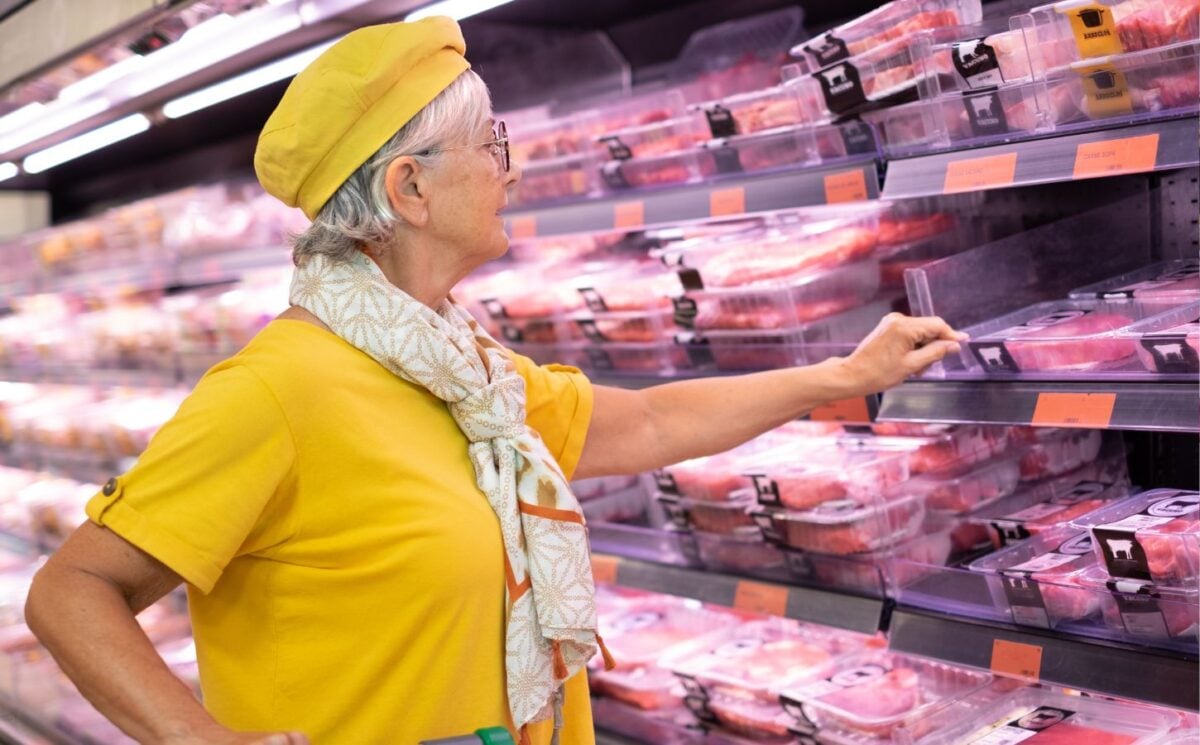The meat and dairy industries could claim to be climate neutral while continuing business-as-usual using an alternative methane emissions metric, according to a new report.
Methane is a powerful greenhouse gas. Cow burps and manure are its predominant source, accounting for 32 percent of humane-caused methane emissions. The report shows how meat and dairy companies can downplay their huge contribution to the climate crisis using GWP* to measure their emissions. Even tiny annual emissions reductions could be presented as climate neutrality.
This would have major implications for climate policy, hindering a shift to plant-based diets. A significant reduction in the consumption of animal products is essential to reduce emissions. Food production alone, mainly meat and dairy, would push the world past safe climate limits if nothing changes.
What is GWP*?
The global warming potential of greenhouse gases (GHGs) have traditionally been measured by metrics like GWP100. These look at their warming potential over a 100 year timeframe. But different GHGs take different lengths of time to break down in the atmosphere.
GWP* was developed in 2018 by a group of researchers from the Oxford Martin School. GWP* accounts for the shorter lifespan of methane compared to carbon dioxide. This means it can better predict methane’s influence on the climate over the next century.
But the meat and dairy industries have embraced GWP* because it posits that holding methane constant will mean global temperatures remain constant. For meat and dairy producers this means they can continue to emit huge amounts of methane, and as long as those emissions don’t increase they can say they are not contributing to climate change.
Lobbying
“There’s a major push ramping up for policymakers to adopt GWP*,” Nicholas Carter, the report’s lead author, told Plant Based News. Industry groups such as Beef + Lamb New Zealand have been lobbying hard for this change, he says, “but this hasn’t been successful yet.”
An alliance of 16 agricultural organizations are pushing for the Intergovernmental Panel on Climate Change (IPCC) to consider using GWP*. “The National Farmers Union and the British Meat Producers Association have also lobbied the UK Committee on Climate Change about the metric,” said Carter.
The report reveals that even government agencies are trying to get GWP100 replaced by GWP* for animal farming. A Freedom of Information request uncovered internal documents showing that Ireland’s Department of Agriculture, Food and the Marine wants to adopt GWP*. This is due to worries that Ireland will have to shrink its cattle herd to meet its climate commitments. The documents show that the department has been advocating for GWP* to other countries too.
Current methane levels are too high
According to the report, the boom in animal farming during the 20th century led to a 332 percent increase in methane emissions from 1890 to 2014. Yet instead of using pre-industrial methane levels as a baseline for emissions reduction targets, the meat and dairy industries want to use current levels.
The idea is that future methane emissions will not increase the total in the atmosphere. Instead, they will simply replace previous emissions that have broken down in the meantime. But the report argues that the baseline must be much lower than current emissions, given how high they are. “Ultimately, reducing methane is the quickest way to reduce atmospheric greenhouse gas effects,” it says.
Another assumption underlying the industry’s interpretation of GWP* is that cutting meat and dairy production is not an option. But there are “far better environmentally performing” plant-based alternatives, the report points out.
A widespread shift to plant-based diets could cut emissions from food production by two-thirds. In addition, it would free up vast amounts of agricultural land for rewilding, which would benefit other species and draw down even more carbon.
Greenwashing

If GWP* became a standard way to measure emissions from animal farming, it would hugely undercount its climate impact. According to the report, if Tyson plans to reduce its emissions by 30 percent by 2030, GWP* would make it look like it was removing almost 83 million metric tons of GHGs from the atmosphere. But using GWP100, it would actually be adding almost 60 million metric tons. This is actually a yearly emissions reduction of only 1.4 percent.
Counting emissions this way means a huge meat producer like Tyson could keep growing but claim to be climate-friendly. “GWP* would still help [Tyson] discount their impacts to date, and the increases going forward will be put on a similar level to small companies (or nations) just starting to ramp up their meat consumption,” said Carter.
While GWP* is not yet standard, many companies are already trying to claim climate neutrality for their products. Other research by Changing Markets and other groups shows that misleading terms are becoming common on polluting food products including beef. It found terms such as “carbon neutral,” “climate positive,” “net zero,” and low methane claims to be most prevalent.
Consumers are swayed by these claims as they become more concerned about the climate crisis. The research found that 42 percent of people were more likely to buy a product with a ‘carbon neutral’ label. About a third of people were also willing to pay more for such products.






